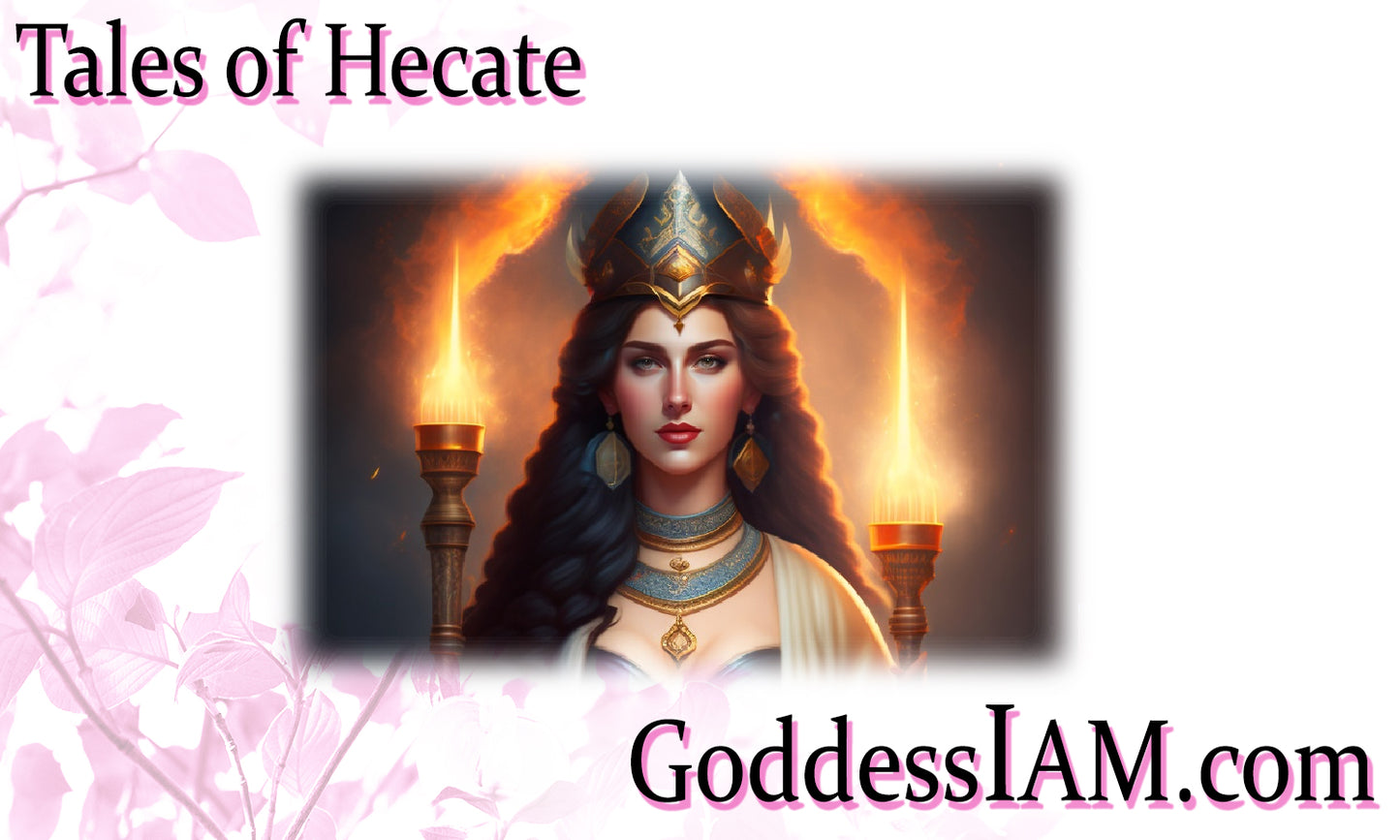
In the ancient pantheon of Greek gods and goddesses, one figure stood apart from the rest, wielding immense power over the realms of magic, witchcraft, and the night. Her name was Hecate, the enigmatic goddess who held sway over crossroads, ghosts, and the secrets of the universe. Let us delve into her myth and explore the depths of her intriguing existence.
Hecate, with her triple form, was born to the Titans Perses and Asteria. From her birth, she possessed an otherworldly aura, radiating wisdom and mystery. Her presence was known to inspire both awe and trepidation among the deities of Olympus. It was said that she dwelled in the shadows, observing the mortal world and intervening in matters of great importance.
One of Hecate's most renowned attributes was her ability to traverse the crossroads. She was often depicted holding torches, illuminating the paths that diverged before weary travelers. These crossroads symbolized not only physical intersections but also the choices and decisions that defined one's fate. Hecate, in her wisdom, guided those who sought her aid, providing them with insight and the courage to embrace their chosen paths.
The goddess's dominion over magic and witchcraft was unparalleled. Her knowledge extended beyond ordinary mortal comprehension, and she bestowed her gifts upon those who proved themselves worthy. Witches and sorcerers sought her favor, and she granted them the ability to wield arcane powers, casting spells and communing with the spiritual realm. Hecate was a guardian of the mystical arts, ensuring the delicate balance between the worlds of gods and mortals.
However, Hecate's realm extended far beyond mere mortals and magic. She held command over the restless spirits of the deceased, ruling the realm of the dead alongside her counterpart Persephone. She was a goddess of liminality, existing in the transitional spaces between life and death. It was said that on the eve of the full moon, Hecate would wander the Earth, accompanied by her spectral hounds. Those who caught a glimpse of her ethereal presence would be blessed with her protection and wisdom.
Yet, Hecate's influence was not limited to benevolence alone. In her triple form, she represented the stages of a woman's life—maiden, mother, and crone. As the crone, she held the power to exact vengeance upon those who dared to cross her or misuse the magic she bestowed. It was unwise to incur her wrath, for she could be a formidable force, striking down those who underestimated her might.
One of the most famous tales associated with Hecate is the story of her role in aiding Demeter in the search for her daughter Persephone, who had been abducted by Hades, the god of the underworld. Hecate's torches guided Demeter through the darkness, and her knowledge of the realms allowed her to negotiate with the deities of the afterlife. Eventually, Persephone was allowed to return to the surface world for part of the year, heralding the arrival of spring.
As time passed, Hecate's influence endured, transcending the boundaries of ancient Greece. Her name was invoked in rituals and ceremonies, and her symbols adorned temples and altars dedicated to her worship. She became a symbol of female empowerment, representing the untamed, mysterious aspects of femininity.
Even in modern times, the spirit of Hecate lives on, resonating with those who seek wisdom, guidance, and the power to traverse the crossroads of life. Her legacy continues to inspire those who dare to explore the depths of their own magic and the hidden realms of the soul.
